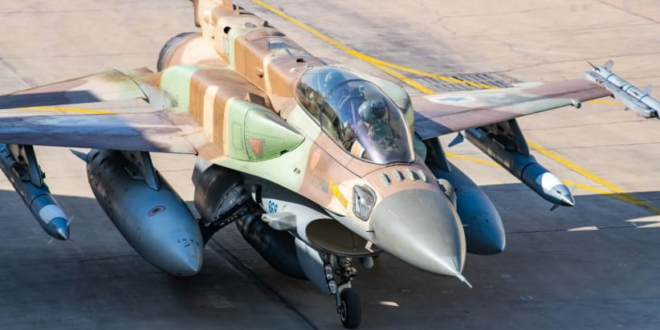According to Israel’s Channel N12, citing the Turkish opposition outlet Sozcu, Turkish F-16s conducted reconnaissance flights in the same area where Israeli jets were operating and issued “warning messages” via electronic warfare systems, al-Modon writes.
Conflicting media reports indicate that Israeli and Turkish fighter jets narrowly avoided a direct confrontation over Syrian airspace during an Israeli airstrike near the presidential palace in Damascus on Thursday night.
According to Israel’s Channel N12, citing the Turkish opposition outlet Sozcu, Turkish F-16s conducted reconnaissance flights in the same area where Israeli jets were operating and issued “warning messages” via electronic warfare systems. A brief radio exchange between the two sides reportedly de-escalated the situation and prevented further escalation.
The Israeli strike targeted several military sites, including positions held by Syrian factions loyal to Ankara, which are believed to receive logistical, military, and training support from Turkey.
This incident occurred amid growing signs of rapprochement between Ankara and the new Syrian administration led by President Ahmad al-Sharaa. Western intelligence sources have pointed to Turkish efforts to convert the T4 airbase into a hub for unmanned aerial vehicles (UAVs), as well as to establish itself as a provider of air defence systems for Syria.
Preemptive Israeli Strikes
Israel has carried out repeated strikes on the T4 base in recent weeks, in addition to targeting Hama airport and two other military sites. These operations, according to military sources, aim to disrupt Turkish plans to install advanced air defence systems and radar infrastructure. They are part of a broader strategic contest between Israel and Turkey, one that stretches from Syrian territory to the Eastern Mediterranean.
Israel views the potential deployment of Turkish air defence platforms—such as the S-400—in Syria as a direct threat to its freedom of aerial operations, particularly in targeting Iranian positions. Additionally, the emergence of a unified Syrian state with a Turkish-backed military is seen in Tel Aviv as a significant strategic concern. Israel is therefore working to prevent any permanent Turkish military presence or formalised defence partnership with the new government in Damascus.
This confrontation is closely tied to wider geopolitical tensions, particularly since Ankara’s 2019 maritime agreement with Libya’s Government of National Accord, which granted Turkey broad exploration rights in the Eastern Mediterranean. That deal was rejected by Israel, Greece, and Cyprus. Tel Aviv now fears Turkey may pursue a similar arrangement with Syria, declaring an Exclusive Economic Zone (EEZ) that could hinder Israeli energy initiatives in the region.
Rising International Concern
The growing friction between Ankara and Tel Aviv has drawn international attention. During a recent meeting with Israeli Prime Minister Benjamin Netanyahu at the White House, U.S. President Donald Trump expressed concern over the escalating tensions and offered to mediate, citing his strong relationship with Turkish President Recep Tayyip Erdoğan.
“I think I can solve any issue you have with Turkey,” Trump stated. “I have a very good relationship with Turkey and with its leader, and I believe we’ll be able to resolve this.”
Meanwhile, Russia also called for restraint. Foreign Minister Sergey Lavrov acknowledged Turkey’s legitimate security concerns in Syria but emphasised that “no country should seek to ensure its own security at the expense of others”—a veiled reference to Israel’s preemptive military actions.
 Eurasia Press & News
Eurasia Press & News



